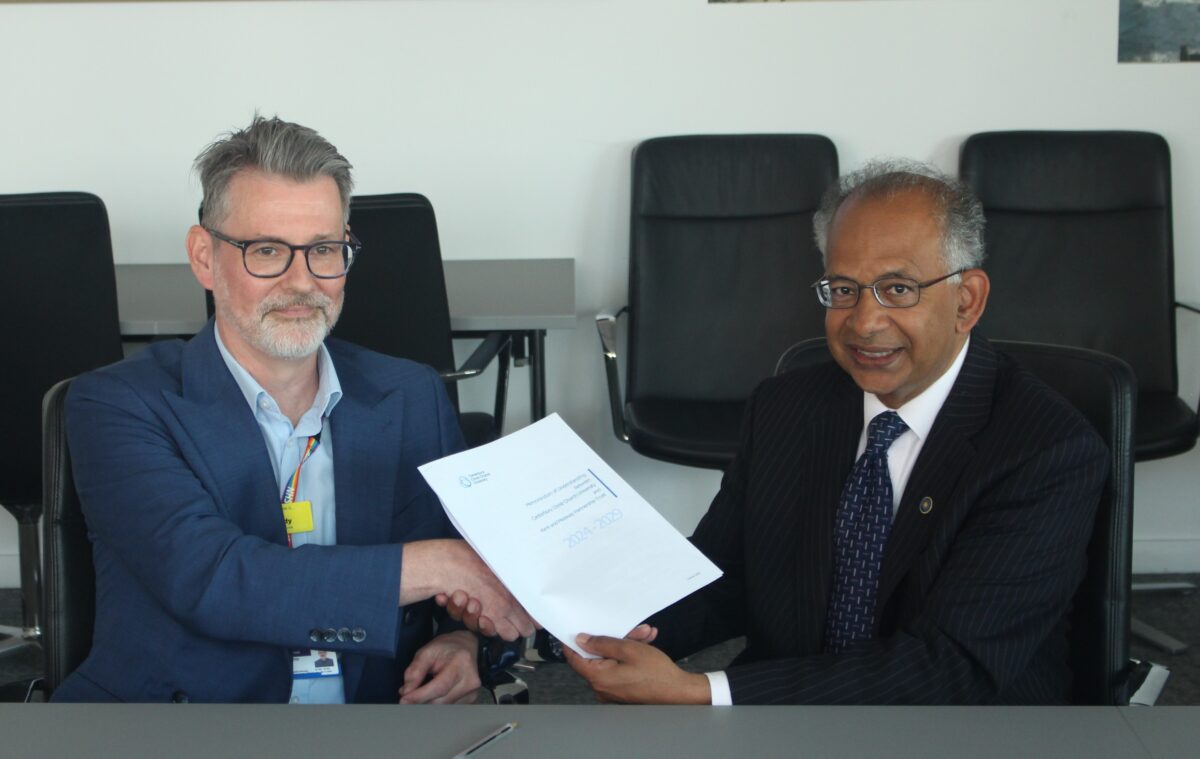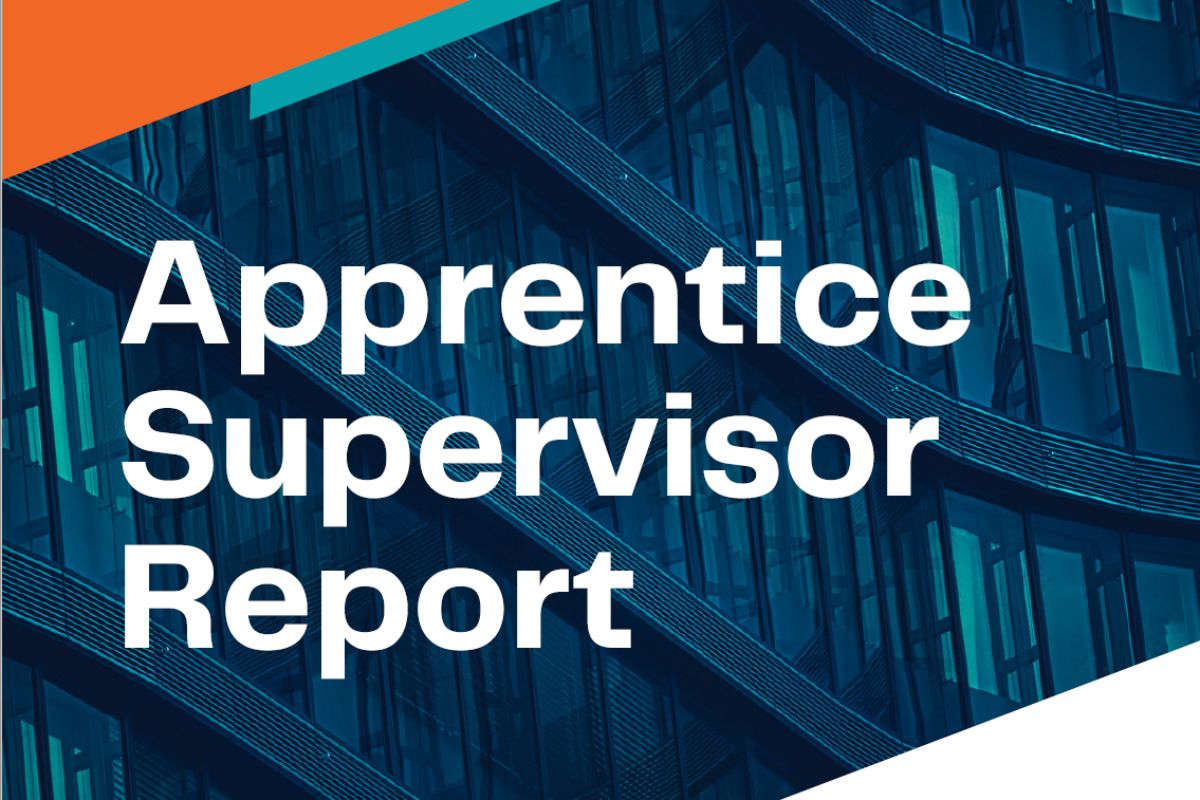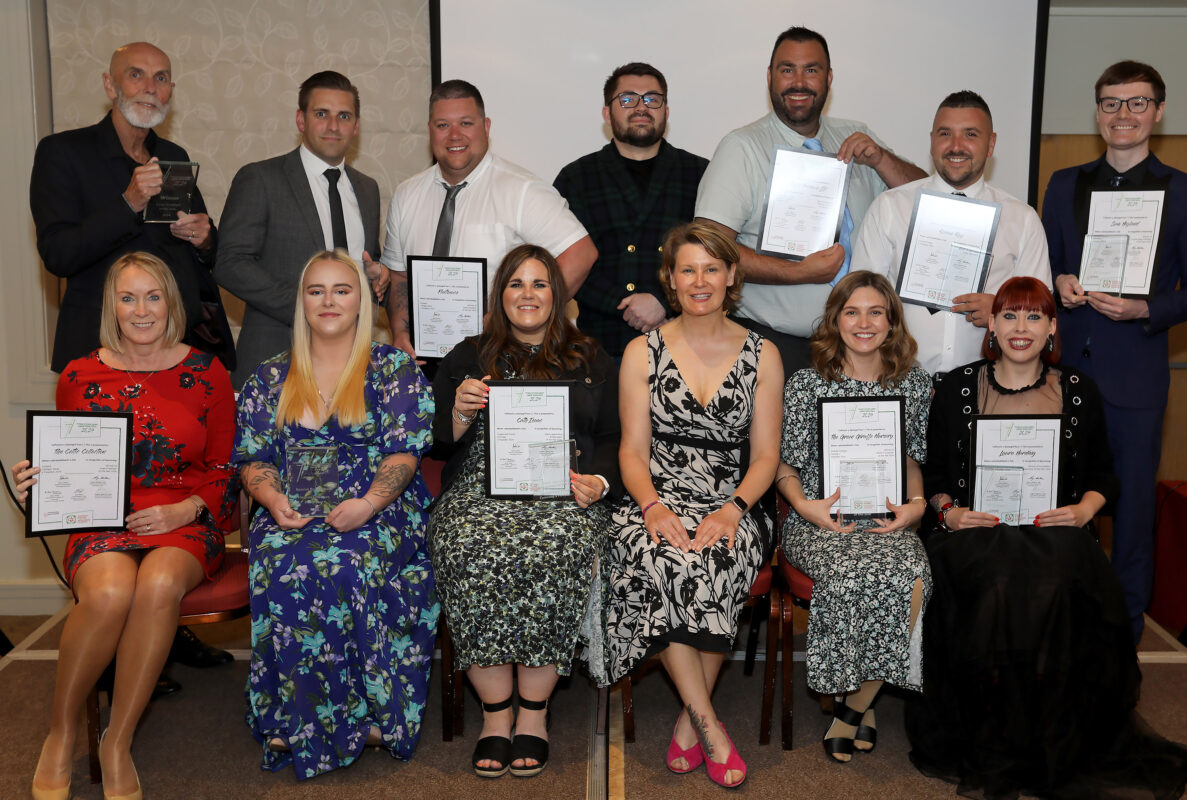Alternative careers: attracting young people to fishing through education

In today’s rapidly evolving technological landscape, it is critical to invest in young talent to secure the future growth of declining industries and address growing skills gaps, especially within the maritime industry.
This article features four young maritime professionals enrolled in Marine Engineering, providing insightful case studies that showcase the importance of investing in talent, funding, education, and promoting alternative career paths to ensure sustainable growth.
By shedding light on the significance of these factors and emphasising the need for greater visibility of the industry, this piece aims to inspire young people to consider pursuing maritime and fishing careers.
Both the seafood and fishing sectors are cornerstones of the UK’s national heritage, contributing greatly to food security and economic growth. But the last decade has seen the industry’s workforce decline – the total number of workers has fallen by 1,700. Therefore, it is vital that the next generation understand the opportunities a career in the sector can offer them and that we equip them with the right skills to thrive within it.
Recently, the government announced a £100m seafood fund, with £10m being allocated to skills and training. This is a great chance for the sector to support creating the next generation of seafarers. But how do we convince younger people of the attractiveness of a career at sea and why is it so important?
A sector in decline and the fundamental need for fishing
According to government data, 61% of young people would not consider a career in seafaring. With soaring vacancies across multiple sectors, trying to sell a role that is demanding and involves working away is challenging. A lack of exposure to the industry may also play a role here: just 8% of those surveyed had family or close friends who work in the fishing or maritime industries.
Additionally, the changes in regulations and fishing quotas following Brexit have affected the sector. The uncertainty this has created means planning for a career in the fishing industry is far from straightforward. All these factors make effective recruitment and retention more difficult.
Sustainable fishing is key to the industry’s survival. Prior to working in the industry myself, I was unaware of how much information consumers can find on their fish’s packaging at the supermarket. Each packet clearly displays the origin of the fish, how it was caught and when. That’s where sustainability comes in – this information is also used by marine biologists to determine the status of various species around the world.
There are now 7.9 billion people living on Earth, with the UN projecting this to climb to 8.5 billion by 2030 and 11 billion by 2100. The need for a sustainable global fish supply is plain to see – a growing population brings with it an increased demand for high-protein, affordable food.
Eating more fish can nutritionally enrich the diets of developing populations. Pelagic fish are abundant in long-chain omega-3 fatty acids and essential nutrients like iron, riboflavin and calcium. Importantly, they are also one of the most cost-effective foods available. Simply put, the low environmental impact of fish and its high protein content makes it essential to delivering cheap, high-quality food to the world.
However, a shallow talent pool will hamper the sector’s growth by limiting skills development. Therefore, it is vital that we provide young people with information on careers at sea so that the sector can continue evolving and growing.
Misinformation causing setbacks
The industry is often mispresented – many people see it as dangerous with low levels of compensation. Others are swayed by alarmist announcements from some environmentalists that fishing is ‘hoovering up’ fish and damaging the marine environment. Ultimately, these negative perceptions make attracting and retaining staff a challenge, especially young workers who seek well-paid, stable jobs.
However, these perceptions are misinformed. All fishing businesses need to comply with the International Labour Organisation (ILO) C188 regulations to make sure that the workplace is safe and that there are appropriate contracts for crews and, recent advancements in both legislation and technology mean the industry is now incredibly safe compared to even a decade ago. Fishing is also a highly regulated activity where fishing vessels are monitored hour to hour to make sure they only catch that which scientists and fisheries managers permit and not a fish more.
Additionally, opportunities to learn within the industry are vast and young people can acquire a range of specialist skills, including many in the STEM branch – the sector is already dependent on highly-skilled labour. As technology progresses, the fishing industry will become more reliant on new seafarers equipped with the knowledge to utilise it.
For instance, marine engineers and naval architects need a strong foundation in mathematics and physics, while those involved in the design and operation of vessels and other maritime technologies need expertise in computer science, artificial intelligence, and robotics.
There is currently a high demand for Engineering Officers on larger modern vessels. These have fully embraced digital solutions and automation and therefore need workers who are tech-literate, as well as having traditional skills. But given the STEM shortage afflicting the entire economy, fishing is not seen as an attractive option. So how can we change this?
And of course, you need highly skilled people to operate ships at sea safely and competently in increasingly congested waters. Electronic navigation packages, radar, sonar and communications systems make the bridge of a fishing vessel a sophisticated and technologically advanced workplace.
There is a clear route from deckhand to Skipper that brings with it significant responsibility not least for the safety and welfare of the crew. This relatively unique leadership and management role attracts rewards commensurate with the scale of accountability.
Learning from those already at sea
Many young people simply do not believe a career in fishing is viable, so hearing how rewarding it can be from those within the industry is important. Schools and colleges also play a key role as a platform for young people to learn about maritime career opportunities and training pathways.
As part of its investment in the next generation of talent, North Atlantic Fishing Company is currently sponsoring four cadets at Fleetwood Nautical college. Three cadets from Hull are enrolled in a Level 3 Diploma course studying marine engineering, they are Thomas Campbell (19), Reuben Shotts (24), and Connor Rawson (20). Nathan Whitton (18) also from Hull, is studying for a Foundation Degree in marine engineering.
Their testimonials illustrate how a maritime career offers the opportunity to travel the world, work in a dynamic and challenging environment, and gain specialised skills that are in high demand.
Regarding perceptions of the industry, Connor Rawson says:
“I’m keen to tackle the misconceptions about fishing. People assume it is not a safe industry, however there is minimal risk involved in modern fishing as there are extensive safety checks completed every day and the vessels are kept very clean. From the engineering perspective, it is very advanced and fishing vessels have a lot of different machinery and systems.”
As Reuben explains:
“I have always been around boats and ships so have always been interested in the industry, but I don’t think many young people think about a career in fishing. They have preconceived notions of what it will be like, but I know the industry is evolving all the time.”
“For example, at the Nautical College, there are elements in training that push you out of your comfort zone, like the adventure training and rock climbing. The course combines theoretical practices including physics and maths – something a lot of people aren’t aware is essential to a role in the industry, especially within engineering.”
Commenting on his first experience aboard a vessel, Connor said:
“When I got the opportunity to go aboard the first thing that shocked me was how big everything was. It was fascinating to see how all the systems work and having seen a few now, I know every ship is different. Being at sea was challenging but very rewarding, I didn’t want to get off as I enjoyed it so much – it was great to be away from home, travelling the world.
“The are some great benefits to working at sea, which I don’t think many people are aware of,” added Thomas Campbell. “Once the days’ work is over, you’re able to sit out on the deck and listen to the sound of the waves, which is very peaceful. You also gain a broader view of other people’s cultures and experiences, both from the different countries you visit whilst out at sea but also the other crew members on board, as there is always a mix of people from different backgrounds with you. Going forward I would like to gain some more practical experience and then come back to education to get to the next rank on board a vessel.”
The role of schools, colleges, and government
To boost the industry’s attractiveness, fishing companies must work with schools and colleges to provide information on the opportunities a fishing career offers. Other seafaring nations have many maritime students, but courses are less accessible, and entry not as widely encouraged in the UK. This will need to change for the industry to attract more young people and replenish its ranks.
One way to better inform students is to integrate associated topics into the curriculum. Biology classes, for example, could include a segment on the industry and replenishing fish stocks while students could cover the economic benefit of fishing throughout the world’s coastal communities in geography classes.
Another, more direct, way to provide information would be to invite fishing industry representatives to careers fairs organised by the school or college. Students would then have the opportunity to ask questions about and learn about the industry from practitioners, in addition to finding out about careers within the industry.
Providing the right training is also a key tenet of preparing the new generation for a career at sea. Workers will need to possess the skills to operate and maintain the technologies found on modern vessels. The government’s seafood fund will contribute to this, enabling workers to progress through their careers and gain more responsibilities.
Dispelling myths and inspiring minds
In order to maintain its output, the fishing industry must raise awareness of how rewarding a career at sea can be. Recent advancements in technology make today’s seafaring both a safe and enriching career option. Fishing companies must now partner with educational institutions to promote this message and make entry into the industry more accessible.
By Phil Haslam, Managing Director, North Atlantic Fishing Company











Responses